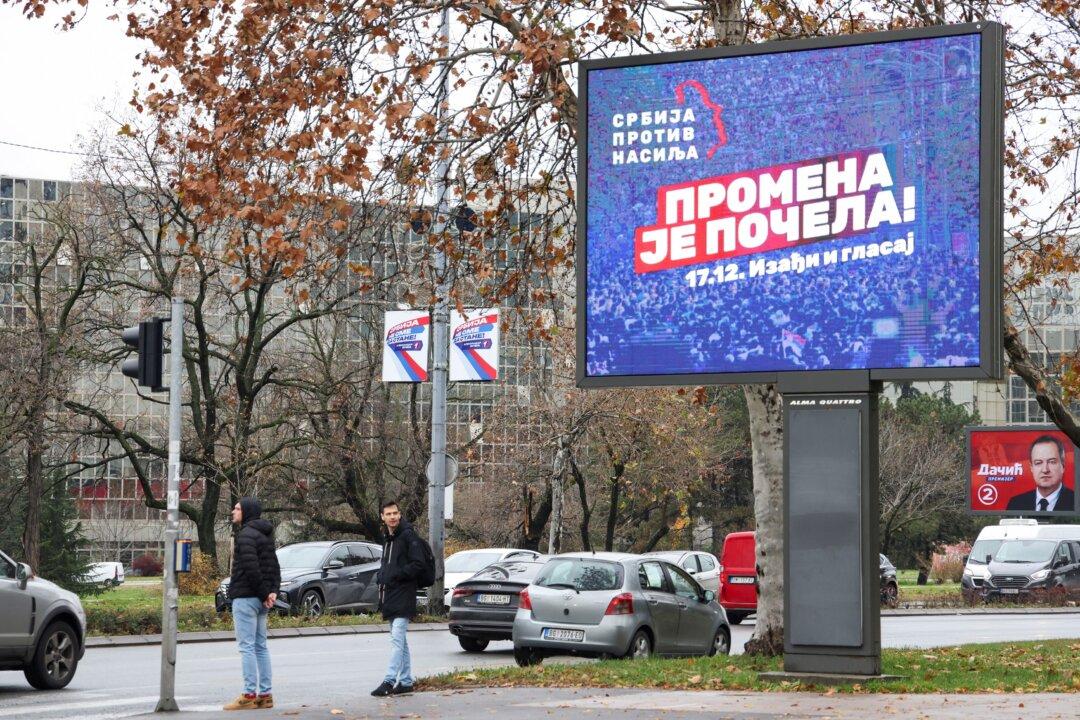BELGRADE—President Aleksandar Vucic declared victory in a snap parliamentary election on Sunday, after pollsters projected his ruling Serbian Progressive Party (SNS) was on track to easily win.
Based on votes counted in a sample of polling stations, pollsters Ipsos and CeSID predicted the populist SNS won 46.2% of votes, while the opposition center-left Serbia Against Violence (SPN) alliance is set to come second with 23.2%.





